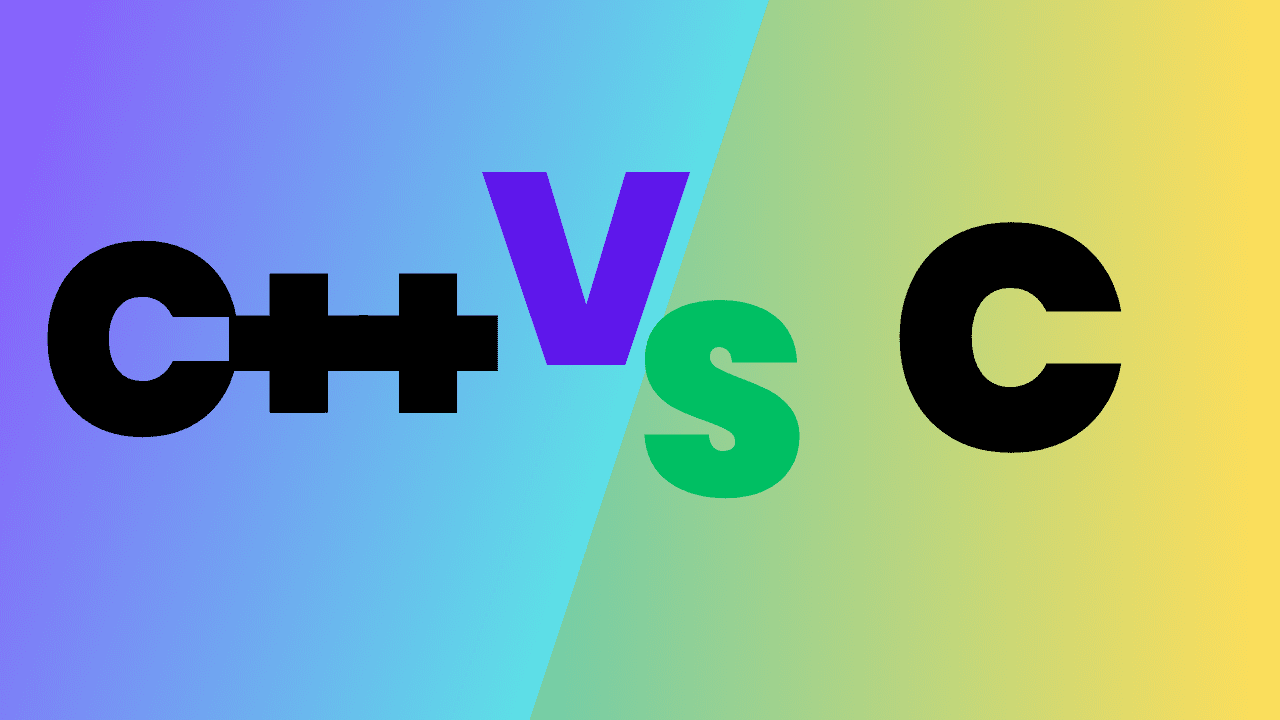
Difference of C and C++ that every developer has to know.
C is the subset of C++.C and C++ have the same syntax. C++ is the same as C but there is Object-Oriented Programming, Exception Handling, Templating, and a more extensive standard library are added.
| C | C++ |
| C was developed by Dennis Ritchie between the year 1969 and 1973 at AT&T Bell Labs. | C++ was developed by Bjarne Stroustrup in 1979. |
| C does no support polymorphism, encapsulation, and inheritance which means that C does not support object oriented programming. | C++ supports polymorphism, encapsulation, and inheritance because it is an object-oriented programming language. |
| C is (mostly) a subset of C++. | C++ is (mostly) a superset of C. |
| For the development of code, C supports procedural programming. | C++ is known as hybrid language because C++ supports both procedural and object-oriented programming paradigms. |
| Data and functions are separated in C because it is a procedural programming language. | Data and functions are encapsulated together in form of an object in C++. |
| C does not support information hiding. | Data is hidden by the Encapsulation to ensure that data structures and operators are used as intended. |
| Built-in data types is supported in C. | Built-in & user-defined data types is supported in C++. |
| C is a function driven language because C is a procedural programming language. | C++ is an object driven language because it is an object oriented programming. |
| Function and operator overloading is not supported in C. | Function and operator overloading is supported by C++. |
| C is a function-driven language. | C++ is an object-driven language |
| Functions in C are not defined inside structures. | Functions can be used inside a structure in C++. |
| Namespace features are not present inside the C. | Namespace is used by C++, which avoid name collisions. |
| Standard IO header is stdio.h. | Standard IO header is iostream.h. |
| Reference variables are not supported by C. | Reference variables are supported by C++. |
| Virtual and friend functions are not supported by C. | Virtual and friend functions are supported by C++. |
| C does not support inheritance. | C++ supports inheritance. |
| Instead of focusing on data, C focuses on method or process. | C++ focuses on data instead of focusing on method or procedure. |
| C provides malloc() and calloc() functions for dynamic memory allocation, and free() for memory de-allocation. | C++ provides new operator for memory allocation and delete operator for memory de-allocation. |
| scanf() and printf() functions are used for input/output in C. | cin and cout are used for input/output in C++. |
| C structures don’t have access modifiers. | C ++ structures have access modifiers. |
| C follows the top-down approach | C++ follows the Bottom-up approach |
| There is no strict type checking in C programming language. | Strict type checking in done in C++. So many programs that run well in C compiler will result in many warnings and errors under C++ compiler. |
| C does not support overloading | C++ does support overloading |
| Type punning with unions is allows (C99 and later) | Type punning with unions is undefined behavior (except in very specific circumstances) |
| Named initializers may appear out of order | Named initializers must match the data layout of the struct |
| File extension is “.c” | File extension is “.cpp” or “.c++” or “.cc” or “.cxx” |
| There are 32 keywords in the C | There are 97 keywords in the C++ |
Share this with your coding. For more coding comment below.


Comments are closed.